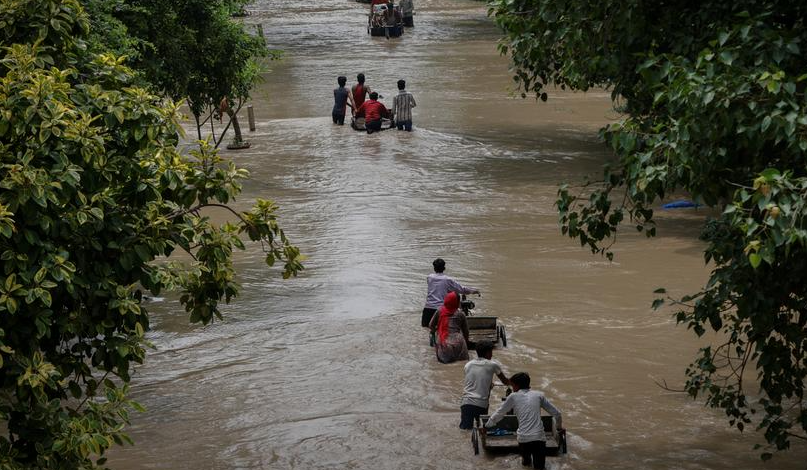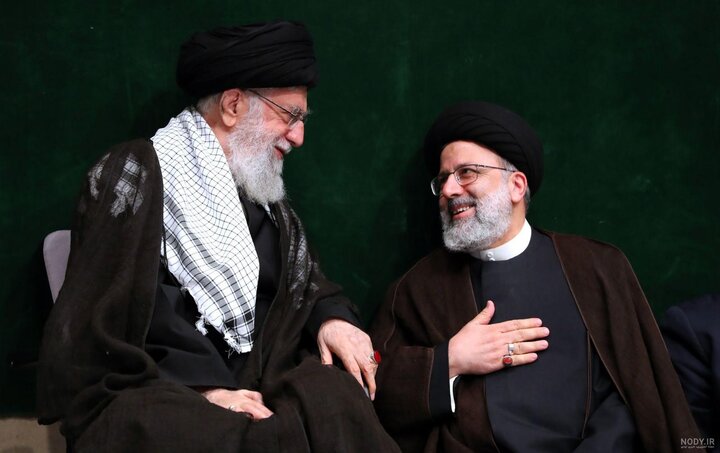- Web Desk
- 52 Minutes ago
India elections: why is no one talking about climate change?

WEB DESK: Climate change hasn’t appeared as a hot-button election issue in India, despite a staggering 80 per cent of people living in areas at risk of climate-induced disasters.
When India’s Yamuna River, which runs through the country’s capital region, overflowed its banks last year, New Delhi found itself plunged into a flood emergency.
At the height of the crisis, Bhagwati Devi, who runs a small vegetable farm in the low-lying Yamuna plains on the outskirts of New Delhi, had to be evacuated to higher ground.
“We spent the entire night stranded up on a tree before we were evacuated,” she said.
The 37-year-old said she spent the following weeks in abysmal conditions on the capital’s highway as her shanty was washed away — along with many of her belongings.
Devi’s livelihood suffered for months as her crop was destroyed in the floodwaters.
Environmental experts blamed heavy rainfall in India’s northern states along with poor urban planning for New Delhi’s floods.
This year, Devi will cast her vote in the ongoing national elections. But, unaware of the scientific phenomenon of climate change, which is wreaking havoc in her daily life, it will not influence her vote.
The case of Devi is not an outlier, as anecdotal evidence suggests that the issue of climate change is rarely seen trickling down in India’s electoral politics.
Why isn’t the environment a hot-button election issue?
Experts say that the discourse around climate change is not actually missing in India, it’s just different.
“The politics of climate change in India is just not labelled neatly as ‘climate change’
but it does not mean that climate change is not shaping Indian politics,” said Aditya Valiathan Pillai, a fellow at the New Delhi-based Sustainable Futures Collaborative, an independent climate change research organization.
Most of the politics around climate change translates into finding ways to solve the consequences of climate change — which can be seen if we look at the mobilization around irrigation, lack of access to water, demands for farm loan waivers etc., he explained.
“In party manifestos, many sectoral promises are climate-related but not placed within the climate chapters,” he said.
Connecting the dots
Aarti Khosla, founder of Climate Trends, an Indian research-based consulting initiative, explained that to many people climate change in itself is never the issue — but it becomes an issue when it makes other problems more pronounced.
“We continue to think that climate politics only exists when there is a Green Party like that in the West or when the exact terminology of ‘climate change’ is used in manifestos,” she said.
“I don’t think climate change will be addressed like that in India anytime soon.”
How do Indian voters perceive climate change?
Observers believe that awareness about climate change in India is growing.
Only 9 per cent of Indians said they know “a lot” about global warming. But when given a small definition of global warming, a resounding 84 per cent said that it is happening, according to the findings of a 2022 survey.
Read more: Social media: Abstinence can boost self-esteem
The study also reported that 81 per cent of Indians are “very worried” about global warming.
“I think people are much more aware than what we give them credit for,” Khosla said.
But despite the growing concern, it has not yet become a major issue in electoral politics.
How are politicians responding to climate change?
Even in the Indian Parliament, the discourse around climate change has been largely ignored.
A 2022 study found that between 1999 and 2019, only 0.3 per cent of questions raised by politicians were about climate change.
“Speeches on climate change do not connect with the public unless there is a triggering issue,” said Rajeev Gowda, a candidate from the Congress party contesting the southern Indian city of Bengaluru, which is experiencing a water crisis.
“We actually repel a lot of people by saying it’s climate change,” said Khosla.
If we present climate change in terms of more palpable events of day-to-day life, then we can get more people to understand it, she said.
In the case of Devi, while perhaps she does not know what climate change truly means, its consequences have not gone unnoticed by her. “Earlier the crop yield used to be much higher and we could get potable water directly from handpumps but now we depend on water tankers.”




